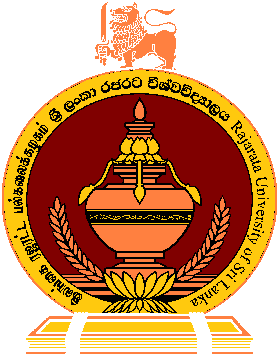The Department of Electrical and Electronic Technology is equipped with nine well-established laboratories designed to provide hands-on experience that complements the department’s broad curriculum. These laboratories support teaching, industrial training, and final-year research, ensuring students graduate with the practical skills required in modern engineering environments.
State of the art laboratories empowering innovation, research, and hands-on learning in Electrical and Electronic Technology.
| No. | Laboratory Name |
|---|---|
| 1 | Physics Laboratory |
| 2 | Advanced Research Laboratory |
| 3 | Electrical and Power Laboratory |
| 4 | Robotics and Automation Laboratory |
| 5 | Analog and Digital Electronics Laboratory |
| 6 | Electro-technical Fabrication Laboratory |
| 7 | Computer Laboratory |
| 8 | Telecommunication Laboratory |
| 9 | Smart Systems Laboratory |



Common Laboratory Downloadable Resources
| No. | Resource Name | Download Link |
|---|---|---|
| 1 | Laboratory Handbook | Click here to download |
| 2 | Lab Safety Guidelines | Click here to download |
| 3 | Weekly Lab Timetable | Click here to download |
| 4 | Lab Equipment Booking Form | Click here to download |
| 5 | Full Equipment Inventory (All Labs) | Click here to download |
| 6 | General Lab Rules & Conduct Policy | Click here to download |
01. Physics Laboratory
The Physics Laboratory introduces students to the fundamental principles of science and engineering. It supports experiments in mechanics, electricity, magnetism, waves, optics, and introductory electronics, helping students develop analytical and experimental skills that form the foundation for advanced engineering studies.
02. Advanced Research Laboratory
The Advanced Research Laboratory is dedicated to final-year projects, undergraduate research, and faculty-led investigations. It provides resources for cutting-edge work in renewable energy, embedded systems, IoT applications, smart grid technologies, and prototype development, enabling students to transform ideas into real solutions.
03. Electrical and Power Laboratory
This laboratory focuses on power engineering and electrical systems. Students gain hands-on experience with electrical machines, transformers, protective devices, and power system models. It provides an environment to study generation, transmission, distribution, fault analysis, and system behavior under various operating conditions.
04. Robotics and Automation Laboratory
The Robotics and Automation Laboratory is designed to train students in industrial automation, robotics, and intelligent control systems. It is equipped with PLCs, robotic arms, SCADA software, and electro-pneumatic kits, enabling learners to understand automation processes and prepare for Industry 4.0 practices.
05. Analog and Digital Electronics Laboratory
This laboratory provides facilities for studying analog and digital circuits, semiconductor devices, microcontrollers, and embedded systems. Students use oscilloscopes, signal generators, FPGA boards, and simulation tools to design, build, and test electronic circuits, bridging theory with hands-on practice.
06. Electro-technical Fabrication Laboratory
The Electro-technical Fabrication Laboratory offers practical training in electrical wiring, panel design, equipment assembly, and testing techniques. It is essential for developing hands-on skills in installation, maintenance, and fabrication tasks that are critical for industry-focused applications.
07. Computer Laboratory
The Computer Laboratory is equipped with modern computing facilities and software for simulation, circuit analysis, and design. Students use tools such as MATLAB, LabVIEW, Proteus, AutoCAD Electrical, and C-based programming platforms to support coursework, projects, and research activities.
08. Telecommunication Laboratory
This laboratory supports experiments in communication systems, including modulation, coding, signal processing, antennas, and fiber optics. With access to spectrum analyzers, RF kits, and wireless communication modules, students gain practical knowledge of modern telecommunication technologies.
09. Smart Systems Laboratory
The Smart Systems Laboratory integrates concepts of IoT, sensors, automation, and artificial intelligence. It allows students to design and test smart solutions such as intelligent monitoring, control, and data acquisition systems, encouraging creativity and innovation in emerging technologies.


